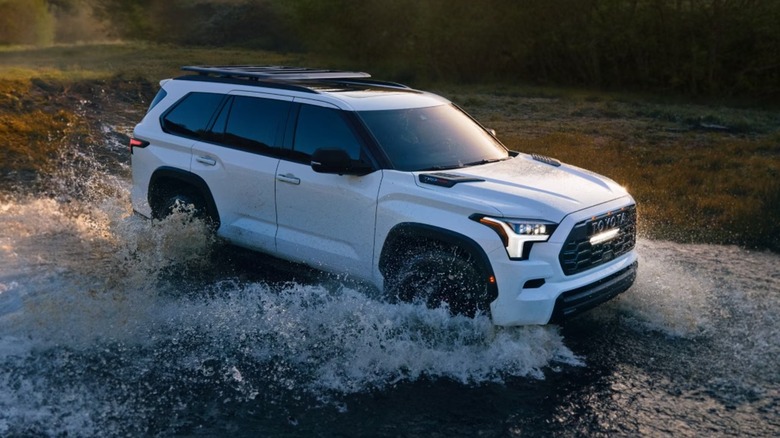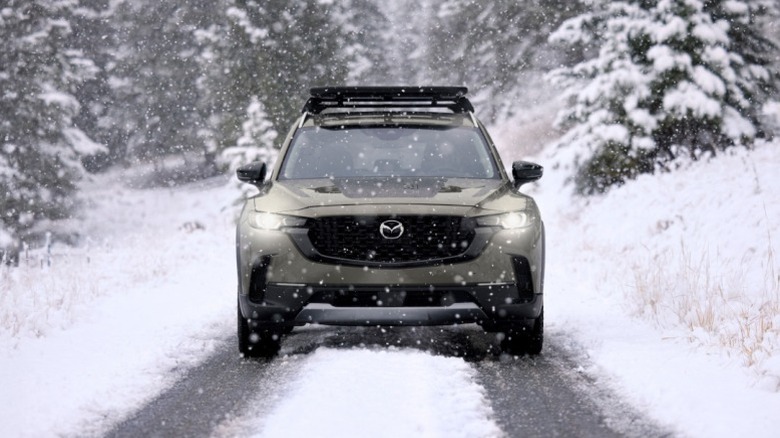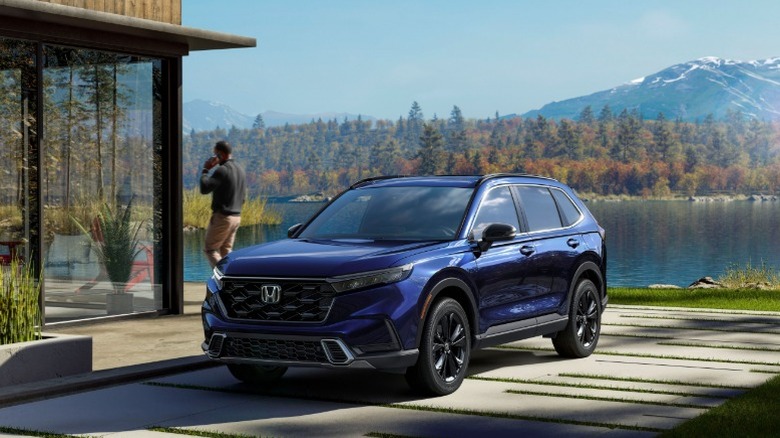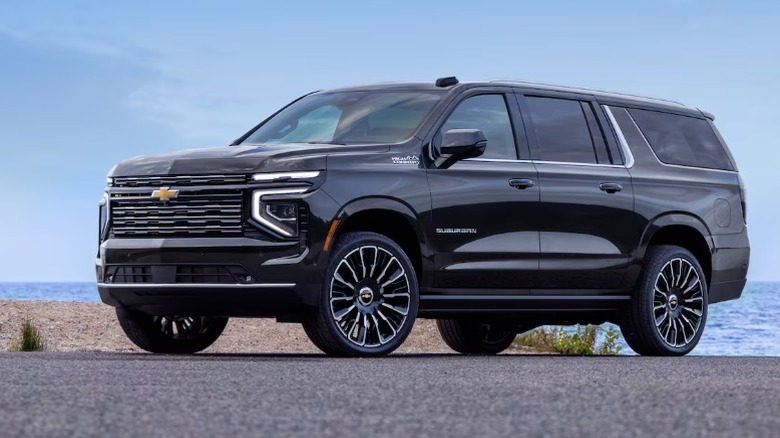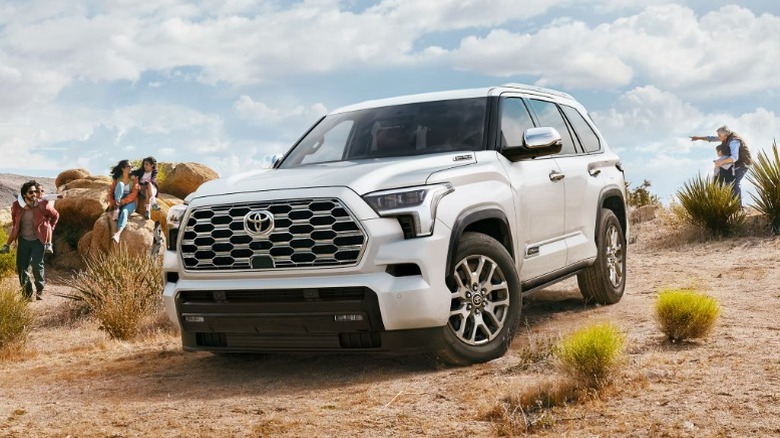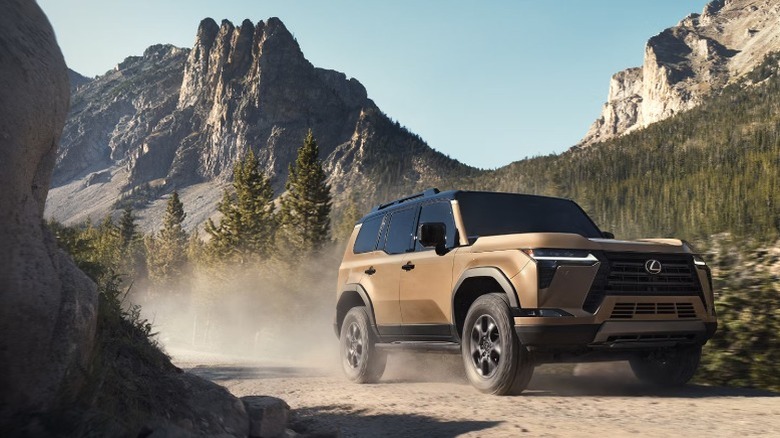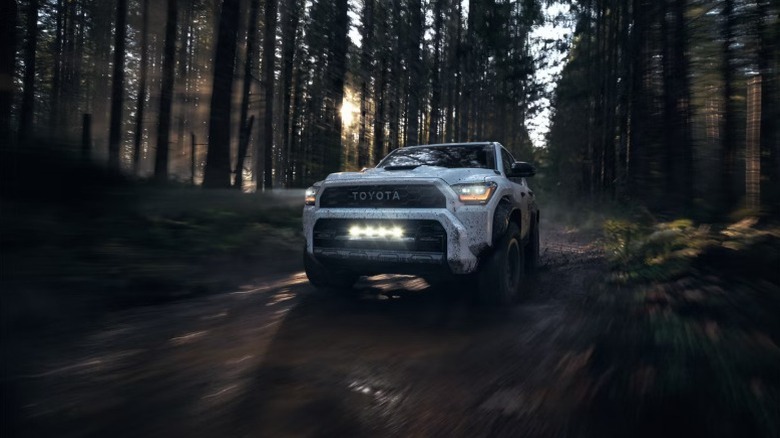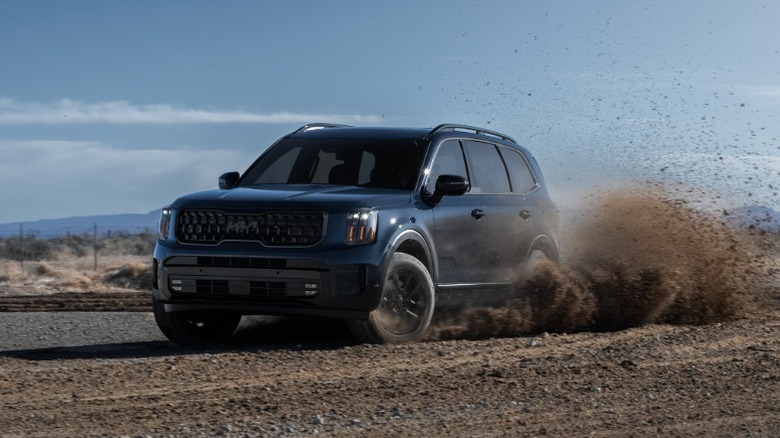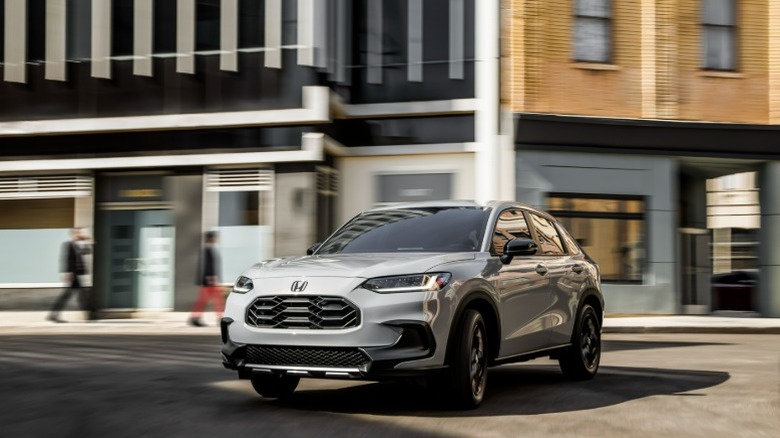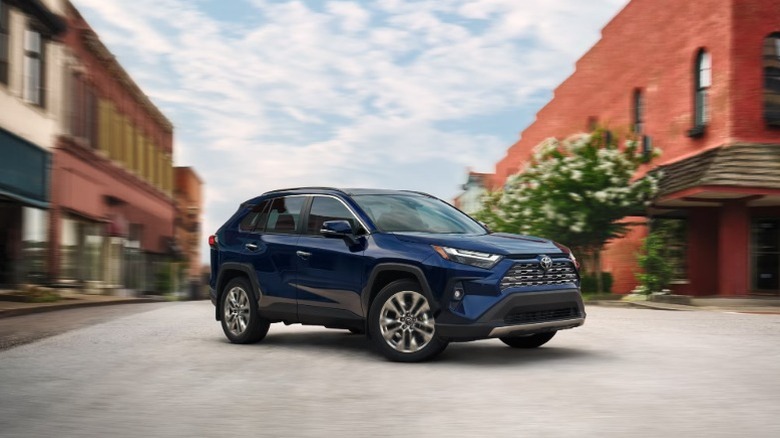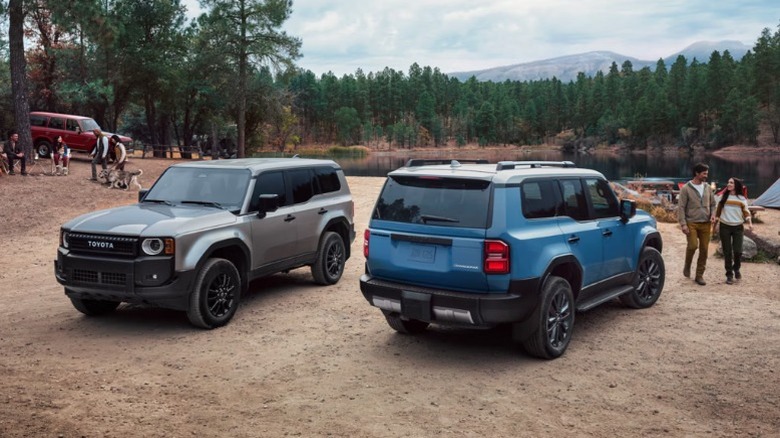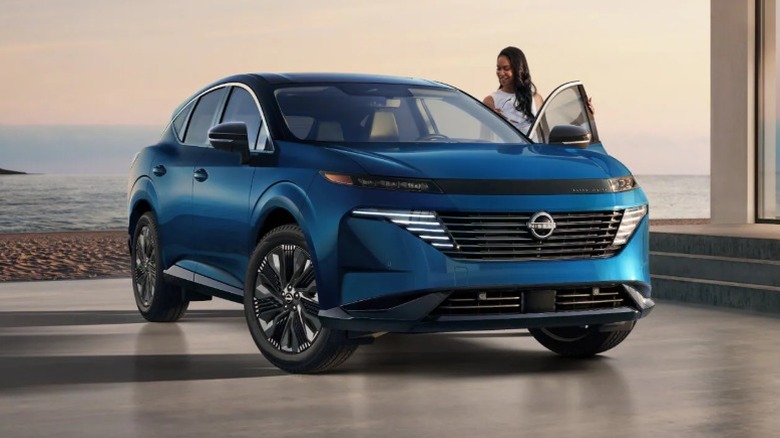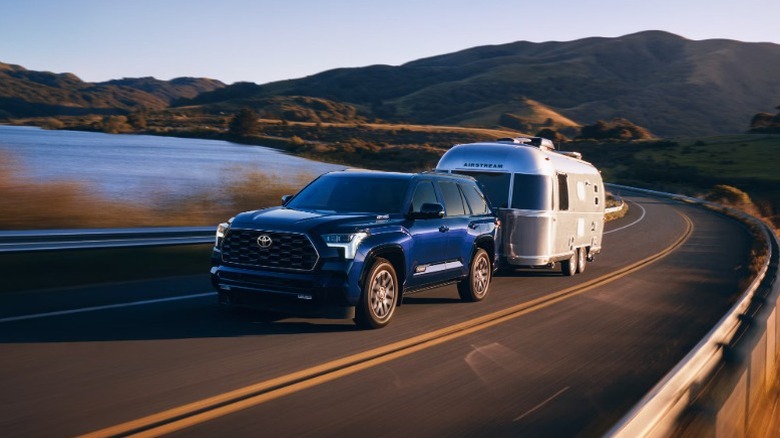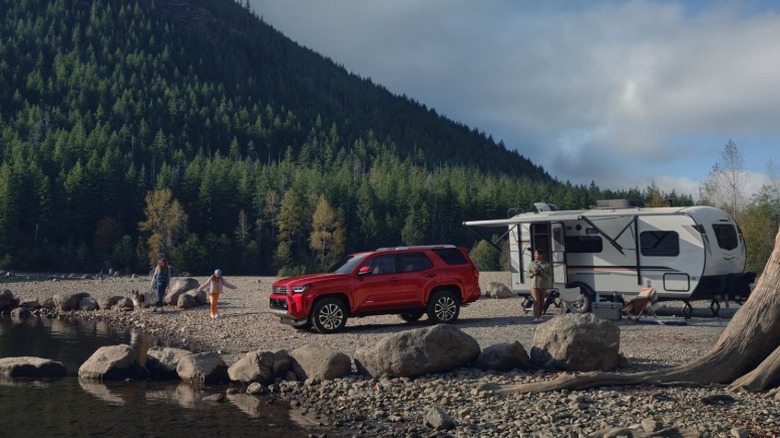12 Dependable SUVs With Unmatched Reliability
SUVs have quickly become the most popular car segment in America, and that's likely because they're one of the most diverse options on the market, ranging in size, shape, features, engine configuration, and even functionality. Regardless of whether you'll be using it for daily commuting, family road trips, or off-road adventures, reliability is a key factor in choosing the right SUV.
If you're buying a car, you want to make sure it'll be a dependable daily driver that'll stay on the road for years to come. You definitely don't want to spend your valuable time researching suspicious sounds, calling AAA, and bouncing between repair shops. Even when you do end up in a repair shop, you want to make sure you're not buying a car that'll cost an arm and a leg to repair and maintain.
A truly reliable SUV should perform consistently, have little to no major issues, especially in the first three years, be inexpensive to repair, and keep going strong for years to come. We've rounded up 12 SUVs that have built a reputation for dependability and last for years with minimal issues, making them a smart investment for any driver.
Mazda CX50
Mazda has quietly become a go-to brand for drivers who want both fun and reliability, with its agile handling, sharp steering, and well-engineered 2.5-liter Skyactiv engine. Being behind the wheel of one of these bad boys feels more like driving a sporty hatchback than your typical crossover. All-wheel drive is standard, making it a suitable companion in rough weather and choppy terrain. On the inside, it has a premium interior that makes it seem a lot more like an entry-level luxury SUV rather than a mainstream compact.
The only real tradeoff with the CX50 is space. Some other competitors offer more passenger space. If you're looking for a dependable but refined ride that feels a class above what its price tag says, it's a perfect daily driver. Edmunds estimates that you'll be spending $1,828 on repairs over five years, while RepairPal gives it a 4.5 out of 5 for reliability, estimating that you can expect to spend $447 annually on repairs, which is lower than average.
Honda CR-V
The Honda CR-V has consistently ranked among the most reliable compact SUVs (and even the most reliable Hondas ever), and the 2025 model continues that tradition. The CR-V has been on the market for 30 years and has cemented itself as the most popular and best-selling vehicle that Honda currently offers, and that's for good reason. With a refined hybrid powertrain option, impressive gas mileage, and strong resale value, it's a solid choice if longevity and everyday drivability are particularly important to you. While it's a compact SUV, which are typically on the smaller side, the CR-V is surprisingly spacious and comfortable.
The 2025 model of the CR-V is the second-highest consumer-rated compact SUV on J.D. Power, with a score of 83 out of 100, which is quite impressive. RepairPal also gives it a 4.5 out of 5 stars for reliability, ranking second out of 26 compact SUVs. On average, owners can expect to spend a little over $400 a year on repairs, meaning it's on the lower end when it comes to ownership costs. The CR-V is an SUV that will serve you well for years without demanding much in return.
Chevrolet Suburban
The Suburban is the longest-running nameplate in automobile history, having been in production for about 90 years; people just can't get enough of it. This is due to its unmatched combination of space, capability, and durability. Whether you're towing a trailer, hauling gear for a camping trip, or moving your big family across the country, the Suburban easily does it all without breaking a sweat. Speaking of big families, the Suburban has always catered to households that are larger than the average, and it continues to do so with its 2025 model, which is the first and only SUV that can be configured to seat nine passengers. This means that it probably has enough space for your entire family, and then some.
Once you get your Suburban, you can expect to have it serve you for many years, with some owners even reporting that it keeps going even well after 250,000 miles. When it comes to the cost of ownership, you can expect to pay around $821 annually on repairs, which is a little on the higher end, but the most common repair issues will cost around $100-$200.
Toyota Sequoia
The Sequoia isn't quite as luxurious and spec-ed out as other full-sized SUVs on the market, but it gets the job done and will for a long time. It's built on the same rugged platform as the Tundra pickup truck and is sporting a twin-turbocharged V6 hybrid engine under the hood. It's a true workhorse that's known for having one of the longest lifespans in the automobile industry, being able to keep going for over 300,000 miles.
Despite its rough exterior, the Sequoia is quite cushy on the inside, with a spacious interior and seats that only get more comfortable the higher the trim level. However, during our time with the 2025 Sequoia, we found the cabin to be smaller than other competitors in its class. Nevertheless, it's still a solid option that doesn't know what it means to quit. It's also less expensive to repair annually than other full-sized SUVS, with an annual repair cost of $642.
Lexus GX
If you love the toughness of the Toyota Land Cruiser but want it dressed in something a little more upscale, the Lexus GX should be on your radar. As the Cruiser's luxury counterpart, the GX raises Toyota's reputable reliability into premium territory, offering the capability and dependability that the LC is known for, but with a refined twist.
The GX isn't just a pretty face built on a body-on-frame platform. It's off-road ready, surprisingly durable, and equipped with a smooth, powerful twin-turbo V6 engine. Inside, it leans hard into comfort, with high-end materials, a quiet cabin, and a tech-forward feature set that lives up to the Lexus badge.
Just like its parent company, choosing a Lexus means choosing reliability. Not only will you have few repairs overall, but when issues do pop up, they're relatively inexpensive to repair. You'll be looking at around $550 on repairs annually, compared to brands like Mercedes and BMW, which will cost you north of $900 annually. The GX has a reliability score of 89 out of 100 on JD Power, which is one of the highest in the entire SUV segment.
Toyota 4Runner
The Toyota 4Runner has always been a symbol of rugged dependability in the SUV market, and the 2025 4Runner keeps that legacy alive. Here, it finally gets the modern update fans have been waiting for. It's still riding on a tough body-on-frame platform, but it now shares its bones with the new Tacoma pickup, which should give you a good idea of just how tough and capable it is. You're even able to choose between two different powertrains under the hood.
The 4Runner is known to last well beyond 200,000 miles, and with Toyota's reputable rock-solid engineering behind it, it's a smart choice for anyone who wants a car that's as tough as it is reliable. Whether you're looking to drive off-road in forests or desert dunes or just want an SUV that won't quit, the new 4Runner stays true to its strong and capable roots while leveling up in all the right places. Even if you're shopping on the pre-owned market, JD Power gives the 2024 4Runner an 86 out of 100 for reliability, and according to RepairPal, you'll be spending about $500 a year on repairs.
Kia Telluride
Kia is probably not the first manufacturer that comes to mind when discussing the most reliable SUVs, but the Telluride is changing that narrative fast, so don't count it out. It not only looks good and drives well, but you can expect to meet many of the features that you see on competitors that are touting a six-figure price tag. Most owners and critics really only have good things to say about the Telluride, so this underdog has managed to land on many best-of lists and boasts impressive consumer ratings.
JD Power gives the Telluride a rating of 85 out of 100 and ranks it as the Best Upper Midsized SUV of 2024. Also, you can expect to spend about $430 on repairs annually for the first five years, which is quite impressive. Add in Kia's 10-year/100,000-mile powertrain warranty, and it becomes clear why so many families are trusting the Telluride for the long haul. It's a solid SUV that gets the job done, but Kia has done a great job giving you a premium-feeling experience at a pocket-friendly price. What more could you ask for in a dependable daily driver?
Honda HR-V
The Honda HR-V is definitely not the flashiest SUV on the road, but when it comes to reliability, it quietly gets the job done and then some: You're essentially paying for a smaller CR-V. It's designed to be simple and practical, giving you a smooth, fuel-efficient ride and a compact size that's perfect for city driving. There are almost no thrills or frills, but what it lacks in design, fancy features, off-road capability, or raw power, it makes up for with consistency, dependability, and low running costs. What you can count on is getting from point A to B without much stress or hassle.
Even with how bare-bones the HR-V is, you're still getting a roomy cabin for its size, and it's a pretty comfortable ride. If you keep to your maintenance schedule and take it in for repairs when you should, it'll serve for well past 200,000 miles, and you could even go past 250,000 if you're extra careful. RepairPal gives the HR-V a perfect rating for reliability, and its yearly ownership cost is on the lower side, as you'll be spending $300 annually on repairs. Most owners have little to no complaints about it, ensuring you have a car that'll be with you for the long haul.
Toyota RAV-4
The Toyota RAV4 has earned its place as one of the most trusted nameplates in the compact SUV world, which is why it replaced the Ford F-150 as the top-selling car in the U.S. history. Somehow, it actually manages to live up to the hype. It consistently ranks high in owner satisfaction and longevity. With proper care and regular maintenance, some owners manage to have it running for upwards of 250,000 miles.
While the styling of the 2025 RAV4 might make it seem like a sporty contender in the crossover segment, you're not going to get much fun behind the wheel. It's not a particularly thrilling ride, but it nails the basics, making it a practical and capable choice with just enough cargo space, a comfortable ride, enough safety features, and decent fuel economy. You won't be making frequent trips to the repair shop, making it a great choice if you want a stress-free experience.
Toyota Land Cruiser
The Land Cruiser returned to roads and showrooms all over the U.S. for the 2025 model year after years of clamor from fans across the globe. After discontinuing the model in 2021, Toyota brought back the iconic nameplate with a bang. Its visually striking design was a fresh and modern take on the iconic design that let everyone know just how rugged and capable it was — and still is.
The Cruiser has consistently topped many full-sized SUV rankings, and for good reason. The LC has built a legendary reputation for reliability due, in part, to Toyota's tested, approved, and trusted engineering. It is perhaps one of the toughest in the game, being able to tow a 5,000-pound travel trailer without even breaking a sweat.
Once you get the keys to a Land Cruiser, you'll be driving it for quite a long time. Many owners report that it stays cruising past 200,000 miles, and some even manage to keep it going for 300,000 miles. Of course, results may vary depending on how well you take care of your vehicle, including regular repair shop maintenance. While RepairPal estimates that the average annual repair cost will be around $850, Toyotas are notoriously reliable and can handle almost anything, so you don't have much to worry about.
Nissan Murano
After almost 10 years of sticking to the same recipe, Nissan has finally given the Murano an updated look that finally brings it into the modern era. This refreshed design features a sharper and sleeker exterior, updated interior tech, and a little more refinement to an already plush and comfortable cabin. While details and figures concerning the all-new Murano are still being tested, if it's anything like its predecessors, you probably know what you're getting: a smooth, comfortable ride with a solid track record.
The 2024 Murano has a reliability rating of 91 out of 100, which is near perfect. Much of this is thanks to the 3.5-liter V6 engine under its hood, a workhorse engine that has been powering the Murano for years. When it comes to repairs, you really shouldn't worry about running into any major issues. RepairPal has some valve issues, and some other standard replacements are listed as some of the common issues owners run into. When it comes to the yearly ownership costs, you're looking at around $500 annually on repairs.
Chevrolet Tahoe
The 2025 model of the Chevy Tahoe is one full-sized SUV that you can count on to keep going, even when the going gets tough. It's built on a truck-based platform designed to take on just about anything. The capability and ruggedness of the Tahoe translates well in its boxy but sleek form factor. On the inside, just like the Suburban, it's the only SUV on the market that can comfortably seat up to nine passengers. It's definitely large enough for most families, and you'll be getting a comfortable experience the entire time, with almost no bumps on the road.
Once you get going in a Chevy Tahoe, you can expect it to keep going for up to 300,000 miles and sometimes even more. JD Power gives it a reliability score of 83 out of 100 and ranks it number one as the best Large SUVs of 2024. Luckily, there aren't any major problems listed on RepairPal as one of its common issues, just some replacements, oil changes, and a check engine light diagnosis. If value retention is important to you, you'll be pleased to know that after five years of use, the Tahoe depreciates by only about 33%.
Methodology
This list came together using research on consumer reliability ratings, common repair issues, long-term ownership costs, and vehicle lifespan in mileage. Most of this information was sourced from websites such as J.D. Power, Edmunds, RepairPal, and CarComplaints. We also relied on our hands-on testing and experience with SUVs and crossovers here at SlashGear.
